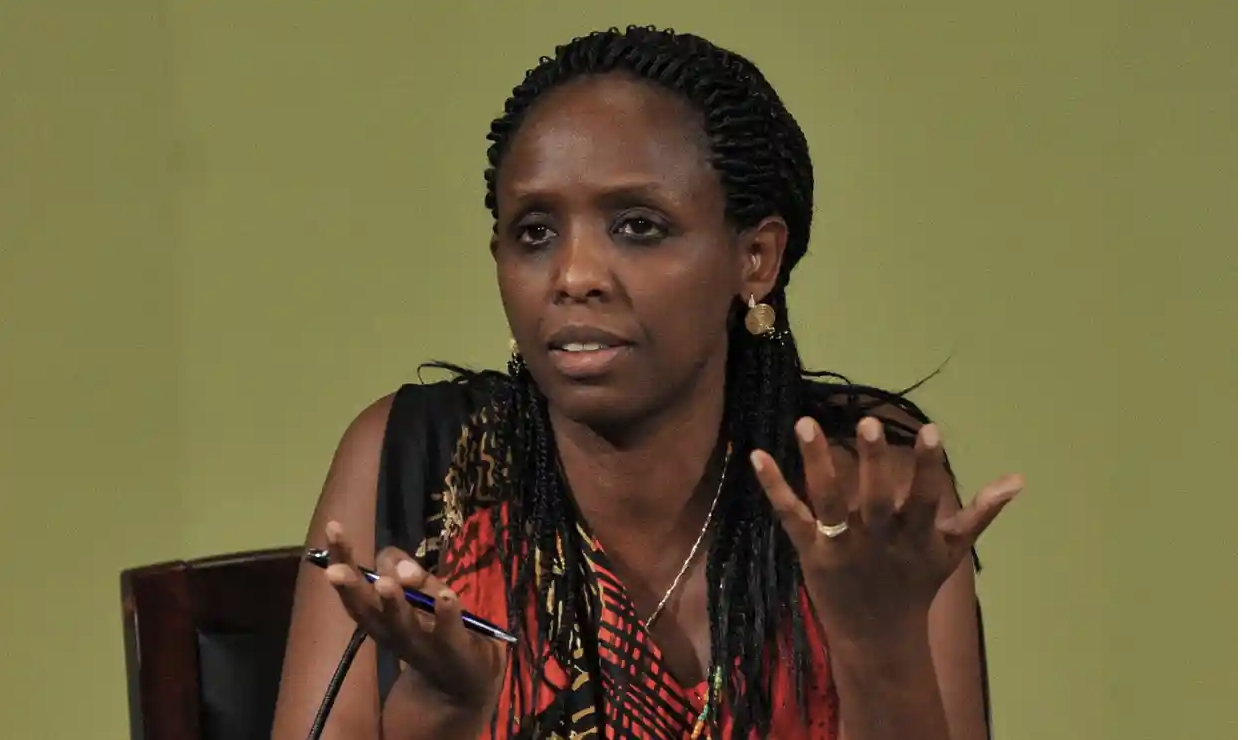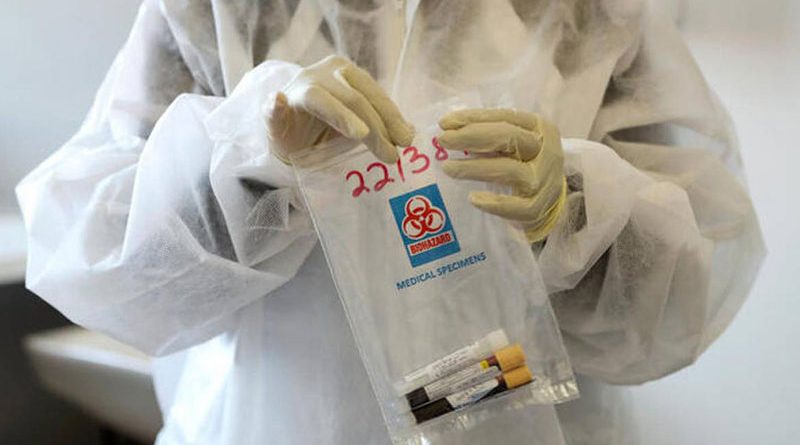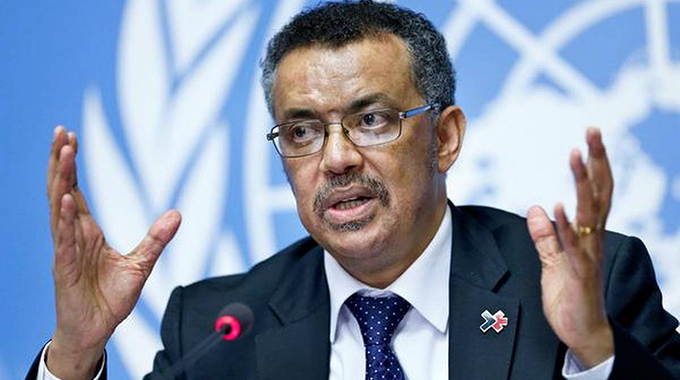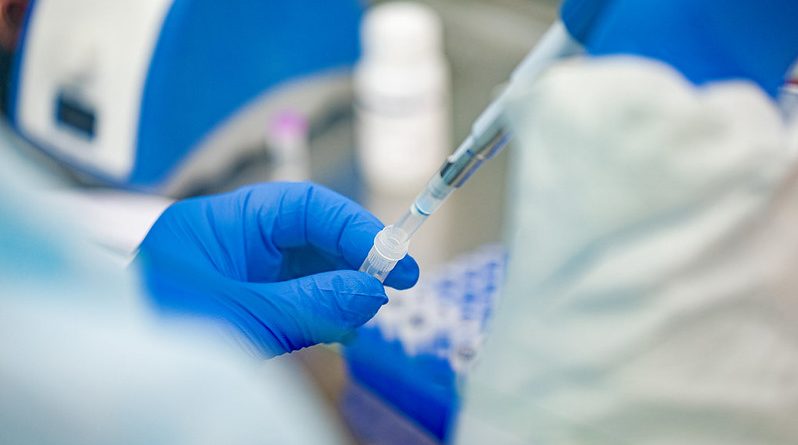People living in poverty around the world are in danger of food shortages as the coronavirus crisis continues, the UN’s food envoy has warned, with the risk worse this year than in the period shortly after the pandemic began.
Agnes Kalibata, the special envoy to the UN secretary-general for the food systems summit 2021, said: “Food systems have contracted, because of Covid-19. And food has become more expensive and, in some places, out of reach for people. Food is looking more challenging this year than last year.”
Many of the problems that experts predicted last year have been deferred, not solved, she said. “The main impact has been on markets, the shutdown of food markets. The lockdown has closed markets and that makes it very difficult for farmers.
“Last year, many countries used whatever opportunity they had to keep their food systems going. That is more difficult now. Food prices have increased significantly in some places.”
She highlighted the plight of African countries in particular, several of which are facing serious food price rises and shortages, exacerbated by problems such as drought predicted in east Africa, likely to affect northern Kenya, Somalia and Ethiopia. “This year, the predicted drought cycle is much more serious than last year,” she said.
Other countries, such as Thailand, were also seeing prices rise, she added. “The price of food is increasing in some cases very fast, which is really challenging.” As the coronavirus pandemic and the global economic crisis it has provoked continue, more countries are likely to be drawn into difficulties, she said. “We have not been able to strengthen our reserves. Now they are under pressure.”
Food systems largely held up last year, with some notable exceptions, after governments heeded early UN warnings against closing their borders or setting tariffs, and as harvests were generally good, according to Kalibata. But those successes may have disguised the fact that many underlying problems have grown worse over the past year, as people have exhausted their reserves of food, cash and family support and now are facing a long crisis without backup.
“We are facing a greater threat this year, as economies have shrunk,” she said. “That is happening across the globe, everywhere. Countries are in a very distressing situation, and it is not getting easier – it is getting more difficult. Some countries have hung on, but for how long?”
She said governments had to plan for a longer crisis than they may have originally envisaged, and that dealing with Covid-19 and its economic impacts could take at least five years. “Mistake number one was that we thought [the crisis] would be short, we thought it could be six months,” she said. “I’m not complaining about lockdowns, they are very important to protect people, but they must not be indefinite.”
Keeping food moving, from areas of production to distribution hubs and consumption centres, and across borders, must be a priority, she said.
The focus of governments must also shift to the impacts on the wider economy, she urged, as people around the world were facing greater hardship as leading economies struggled with recession. “People are losing their jobs,” said Kalibata. “That’s now the most important thing. The economy is shrinking and that is impacting millions of people.”
She urged governments and agencies not to let down their guard as vaccines are rolled out and lockdowns eased in many places. “Social protection is very important. We also need to keep prices down, we need to keep food available and we need to strengthen markets, ensure markets are working despite the crisis,” she said. “The contractions in the economy are affecting the food environment.”
She also called on governments to learn the lessons of the crisis, including how human actions may have contributed to the risk of zoonotic diseases. “We can’t have something like this again,” she said. “We need to look at how we as human beings manage the planet.”
Later this year, the UN food systems summit intends to “launch bold new actions to transform the way the world produces and consumes food”. Countries will examine how the global food system can be improved; the dangers from the climate crisis, wildlife loss and other environmental impacts; consumption patterns, food waste, and what changes may be needed to reduce global hunger; the obesity crisis in some countries; and recovery from the Covid-19 pandemic.
The summit was called by António Guterres, the UN secretary general, in October 2019, before the coronavirus pandemic struck. It is scheduled to take place in September in New York at the same time as the annual UN general assembly, with a preliminary meeting in Italy in July. Kalibata has been criticised by some groups for her role as president of the Alliance for a Green Revolution in Africa, which has been accused of favouring large businesses over small farmers.
HOPE is rising that a new vaccine could halt the COVID-19 pandemic – for some – but lessons learnt from past vaccine programmes in West Africa suggest millions more might miss out.
The super-cold storage temperature required for the new vaccine will make it near impossible to deliver in rural parts of Africa, said public health expert Evelyn Castle.
“We would need all new infrastructure,” said Castle, executive director of the Nigeria-based non-profit organisation eHealth Africa, which in 2016 helped distribute an Ebola vaccine in Sierra Leone at similar temperatures.
“(In Sierra Leone), we had to do full renovations of some of the facilities we worked in.”
The pharmaceutical company Pfizer and its partner BioNTech SE said on Monday that initial trials showed their experimental COVID-19 vaccine was more than 90% effective.
But the vaccine must be kept at temperatures of minus 70 degrees Celsius (-94 F) or below – colder than the North Pole. Even sophisticated U.S. hospitals say they lack that capability.
Routine vaccines typically need to be stored at 2-8°C, about the temperature of a normal refrigerator, and even this is a challenge for much of West Africa, where electricity is non-existent or unreliable, said Castle.
The Ebola vaccine trial in Sierra Leone involved immunising about 8,000 health workers – quite a task, but nothing compared to the job of protecting millions against COVID-19, said Castle.
Coronavirus has killed almost 1.3 million people worldwide and infected 50 million. European nations have already started making deals with Pfizer to purchase millions of doses of the vaccine.
Other companies including Moderna Inc , Johnson & Johnson and Novavax Inc are working on developing vaccines that would not need such low temperatures.
But the first out the block, if it wins emergency U.S. approval as hoped this month, would be Pfizer’s, ensuring a global scramble for infrastructure to make it work.
COLD COMFORT
In Nigeria, many rural health centres have solar-powered fridges, but Castle said they lack the power to hit -70°C.
Generators would be needed, along with someone to ensure they were serviced, fuelled, and monitored constantly so they didn’t drop below the temperature threshold, she said.
Transportation would also be challenging, and not just because of temperature constraints.
“Obviously there are a lot of challenges with keeping it cold in transport, but you might not even have cars, you might not have fuel, you might not have drivers to do the actual delivery,” she said.
In Sierra Leone, health centres had to be equipped with running water so the Ebola vaccine could be administered safely, and with internet to keep track of patient records.
Given all this, a likely scenario is that any vaccine would go to urban areas first, Castle said – in itself a potential problem.
“If we have a limited number of vaccines, who are we going to target? Are we really just going to be giving this to the rich people living in cities?”
Source – Thomson Reuters Foundation.
WORLD Health Organization chief Tedros Adhanom Ghebreyesus has called on more pharmaceutical companies to share manufacturing facilities to help ramp up the production of COVID-19 vaccines.
The WHO also said its technical advisers would meet next week to assess versions of the AstraZeneca vaccine from the Serum Institute of India (SII), the largest vaccine maker, and from South Korea’s SK Bioscience ahead of a possible WHO emergency listing.
Speaking at an online news briefing from Geneva, Tedros said almost 130 countries with a combined population of 2.5 billion people were yet to administer any vaccines, and repeated his plea for rich nations to share doses with poorer countries once they have vaccinated health workers and older people.
“But we also need a massive scale-up in production,” the WHO director-general said.
“Last week, Sanofi announced it would make its manufacturing infrastructure available to support the production of the Pfizer/BioNTech vaccine. We call on other companies to follow this example.”
France’s Sanofi said last week it would fill Pfizer’s vaccine from July, aiming to help supply more than 100 million doses this year amid massive demand.
Other companies are already getting on board, as well.
Switzerland’s Novartis struck a similar deal for the Pfizer shot, while Germany’s Bayer signed on to help CureVac.
EMERGENCY APPROVAL
The WHO has so far approved a single COVID-19 vaccine for emergency use, the shot from Pfizer and its German partner, Biontech.
That could be expanded soon, with the independent WHO advisory group meeting on Feb. 15 to look at versions of AstraZeneca and its partner Oxford University’s shot being made by the SII and SK Biosciences.
“This data only came to us a few weeks ago,” Mariangela Simao, WHO assistant director-general for vaccine access, said of the upcoming assessment, adding the group must analyse not only AstraZeneca’s “core data”, but also data from sites where the vaccine is being made, of which there are eight, before issuing its recommendation.
The world faces around 4,000 variants of the virus that causes COVID-19, prompting a race to improve vaccines, Britain said on Thursday, as researchers began to explore mixing doses of the Pfizer and AstraZeneca shots.
Thousands of variants have been documented as the virus mutates, including the so-called British, South African and Brazilian variants which appear to spread more swiftly than others.
British Vaccine Deployment Minister Nadhim Zahawi said it was very unlikely that the current vaccines would not work against the new variants.
“It's very unlikely that the current vaccine won’t be effective on the variants whether in Kent or other variants especially when it comes to severe illness and hospitalisation,” Zahawi told Sky News.
“All manufacturers, Pfizer-BioNTech, Moderna, Oxford-AstraZeneca and others, are looking at how they can improve their vaccine to make sure that we are ready for any variant – there are about 4,000 variants around the world of COVID now.”
While thousands of variants have arisen as the virus mutates on replication, only a very small minority are likely to be important and to change the virus in an appreciable way, according to the British Medical Journal.
The so-called British variant, known as VUI-202012/01, has mutations including a change in the spike protein that viruses use to bind to the human ACE2 receptor – meaning that it is probably easier to catch.
“We have the largest genome sequencing industry – we have about 50% of the world’s genome sequencing industry – and we are keeping a library of all the variants so that we are ready to respond – whether in the autumn or beyond – to any challenge that the virus may present and produce the next vaccine,” Zahawi said.
VACCINE RACE
The novel coronavirus – known as SARS-CoV-2 – has killed 2.268 million people worldwide since it emerged in China in late 2019, according to Johns Hopkins University of Medicine.
Israel is currently far ahead of the rest of the world on vaccinations per head of population, followed by the United Arab Emirates, the United Kingdom, Bahrain, the United States and then Spain, Italy and Germany.
Britain on Thursday launched a trial to assess the immune responses generated if doses of the vaccines from Pfizer and AstraZeneca are combined in a two-shot schedule.
The British researchers behind the trial said data on vaccinating people with the two different types of vaccines could help understanding of whether shots can be rolled out with greater flexibility around the world. Initial data on immune responses is expected to be generated around June.
The trial will examine the immune responses of an initial dose of Pfizer vaccine followed by a booster of AstraZeneca’s, as well as vice versa, with intervals of four and 12 weeks.
Both the mRNA shot developed by Pfizer and BioNtech and the adenovirus viral vector vaccine developed by Oxford University and AstraZeneca are currently being rolled out in Britain, with a 12-week gap between two doses of the same vaccine.




